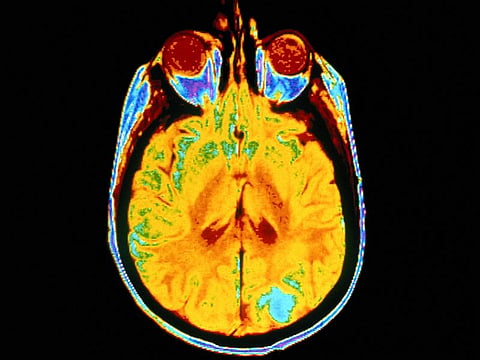MONDAY, Feb. 1, 2016 (HealthDay News) -- Increasing weight loss from midlife to late life may be a marker for mild cognitive impairment (MCI), according to a study published online Feb. 1 in JAMA Neurology.
Rabe E. Alhurani, M.B.B.S., from the Mayo Clinic Graduate School of Medicine in Rochester, Minn., and colleagues examined the correlation between change in weight and body mass index (BMI) and risk of MCI in participants aged 70 years or older from the Mayo Clinical Study of Aging. The authors retrospectively ascertained maximum weight and height in midlife (40 to 65 years of age).
The researchers found that 524 of the 1,895 cognitively normal participants developed incident MCI over a mean follow-up of 4.4 years. Participants who developed incident MCI had a greater mean rate of weight change per decade from midlife to study entry than those who remained cognitively normal (−2.0 versus −1.2 kg; P = 0.006). After adjustment for sex, education, and apolipoprotein E ε4 allele, a greater decline in weight per decade correlated with increased risk of incident MCI (hazard ratio, 1.04; P < 0.001). A 5 kg weight loss per decade correlated with a 24 percent increase in MCI risk (hazard ratio, 1.24). There was also a correlation for higher decrease in BMI per decade with incident MCI (hazard ratio, 1.08; P = 0.003).
"Increasing weight loss per decade from midlife to late life is a marker for MCI and may help identify persons at increased risk for MCI," the authors write.
Abstract
Full Text (subscription or payment may be required)


